Which nations have qualified in Greco-Roman for Paris Olympics
Friday, May 3, 2024 - 12:24 By Eric Olanowski

PARIS, France (May 3) -- The ultra-competitive and uber-emotional final stage of the Paris Olympic Qualifiers is set to take place in Istanbul, Turkiye, May 9-12.
After next week’s Battle on the Bosporus -- which is the sixth and final event on the Olympic qualification calendar -- all 288 tickets to Paris 2024 will be booked and the nations wrestling in Paris will be set.
Breakdown of quotas allocations for Paris 2024:
- World Championships = 30 freestyle, 30 women’s wrestling and 30 Greco-Roman = 90 quotas
- Continental Olympic Qualifiers (x4 continents) = 12 freestyle, 12 women’s wrestling and 12 Greco-Roman = 36
- World Olympic Qualifier = 18 freestyle, 18 women’s wrestling and 18 Greco-Roman = 54
- Total = 96 freestyle, 96 women’s wrestling and 96 Greco-Roman = 288 wrestlers in Paris
It’s worth noting, and as you’ll see below, the induvial wrestler who earns the ticket to the Olympic Games does not own the right to compete in Pairs. Ultimately, it’s the National Olympic Committee / country who selects their entry for the Games.
For example: David TAYLOR (USA), through his world-title winning performance in Belgrade, punched the United States’ ticket at 86kg. But after going through their Olympic Trails, and with Taylor falling in the finals, the Stars and Stripes will send Aaron BROOKS (USA) to Paris at 86kg.
Over the last 290 days, wrestles have gone through two of three stages vying for their opportunity to earn their nation’s berth to Pairs.
The beginning stages of the qualification process took place last September at the 2023 World Championships, in Belgrade, Serbia, where there was a total of 90 quotas up for the taking. Wrestlers who won a medal--gold, silver or bronze (x2)-- earned a ticket for their country.
Additionally, the two losers of the bronze-medal matches faced off in an Olympic playoff match, determining the fifth allocation in Belgrade.
Then came the Continental Olympic Qualifiers, where 36 quotas per continent were handed out.
Those athletes who reached the finals of their respective weight classes at the Pan-American, African & Oceania, European and Asian Olympic Qualifiers booked their nation’s ticket to Paris.
Now, after traveling through Belgrade, Acapulco, Alexandria, Baku and Bishkek, we’ve reached Istanbul for the “Last Chance Qualifier.”
There will be a slight adjustment to the number of allocations given in Istanbul, where in addition to the finalists earning berths to Paris, there will be an Olympic playoff between the winners of the bronze-medal matches to determine the final entries for the Olympic Games.
The draws for the World Olympic Qualifier will take place on May 8, with wrestling beginning the following day. Greco-Roman will compete live on UWW+ on May 9-10, women’s wrestling on May 10-11 and freestyle on May 11-12.
Here are the Greco-Roman nations that have qualified for the Paris Olympics before the start of the World Olympic Qualifier (May 9-12).
60kg
From World Championships
Kyrgyzstan (Zholaman SHARSHENBEKOV)
Japan (Kenichiro FUMITA)
China (Liguo CAO)
Uzbekistan (Islomjon BAKHRAMOV)
Iran (Mehdi MOHSEN NEJAD)
From Pan-Am OG Qualifier
Venezuela (Raiber RODRIGUEZ)
Cuba (Kevin DE ARMAS)
From African & Oceania OG Qualifier
Algeria (Abdelkarim FERGAT)
Egypt (Moamen MOHAMED)
From European OG Qualifier
Moldova (Victor CIOBANU)
Turkiye (Enes BASAR)
From Asian OG Qualifier
Kazakhstan (Aidos SULTANGALI)
DPR Korea (Se Ung RI)
From World Olympic Qualifier
Sadyk LALAEV as Individual Neutral Athlete
Azerbaijan (Murad MAMMADOV)
Serbia (Georgij TIBILOV)
67kg
From World Championships
Cuba (Luis ORTA)
Azerbaijan (Hasrat JAFAROV)
Iran (Mohammadreza GERAEI)
Serbia (Mate NEMES)
Armenia (Slavik GALSTYAN)
From Pan-Am OG Qualifier
Chile (Nestor ALMANZA)
Ecuador (Andres MONTANO)
From African & Oceania OG Qualifier
Tunisia (Souleymen NASR)
Algeria (Ishak GHAIOU)
From European OG Qualifier
Ukraine (Parviz NASIBOV)
France (Mamadassa SYLLA)
From Asian OG Qualifier
Japan (Kyotaro SOGABE)
Kyrgyzstan (Amantur ISMAILOV)
From World Olympic Qualifier
Moldova (Valentin PETIC)
Georgia (Ramaz ZOIDZE)
Egypt (Mohamed ELSAYED)
77kg
From World Championships
Kyrgyzstan (Akzhol MAKHMUDOV)
Azerbaijan (Sanan SULEYMANOV)
Armenia (Malkhas AMOYAN)
Japan (Nao KUSAKA)
Uzbekistan (Aram VARDANYAN)
From Pan-Am OG Qualifier
Cuba (Yosvanys PENA)
Colombia (Jair CUERO)
From African & Oceania OG Qualifier
Algeria (Abd Elkrim OUAKALI)
Egypt (Mahmoud ABDELRAHMAN)
From European OG Qualifier
Turkiye (Burhan AKBUDAK)
Finland (Jonni SARKKINEN)
From Asian OG Qualifier
Kazakhstan (Demeu ZHADRAYEV)
Iran (Amin KAVIYANI)
From World Olympic Qualifier
Sergei KUTUZOV as Individual Neutral Athlete
Bulgaria (Aik MNATSAKANIAN)
Hungary (Zoltan LEVAI)
87kg
From World Championships
Turkiye (Ali CENGIZ)
Hungary (David LOSONCZI)
Ukraine (Zhan BELENIUK)
Bulgaria (Semen NOVIKOV)
Kazakhstan (Nursultan TURSYNOV)
From Pan-Am OG Qualifier
United States (Spencer WOODS)
Colombia (Carlos MUNOZ)
From African & Oceania OG Qualifier
Algeria (Bachir SID AZARA)
Egypt (Mohamed METWALLY)
From European OG Qualifier
Serbia (Aleksandr KOMAROV)
Milad ALIRZAEV as Individual Neutral Athlete
From Asian OG Qualifier
Iran (Alireza MOHAMDIPIANI)
China (Haitao QIAN)
From World Olympic Qualifier
Azerbaijan (Rafig HUSEYNOV)
Kiryl MASKEVICH as Individual Neutral Athlete
Poland (Arkadiusz KULYNYCZ)
97kg
From World Championships
Cuba (Gabriel ROSILLO)
Armenia (Artur ALEKSANYAN)
Iran (Mohammadhadi SARAVI)
Czech Republic (Artur OMAROV)
Abubakar KHASLAKHANAU as Individual Neutral Athlete
From Pan-Am OG Qualifier
Honduras (Kevin MEJIA)
United States (Alan VERA GARCIA)
From African & Oceania OG Qualifier
Algeria (Fadi ROUABAH)
Egypt (Mohamed GABR)
From European OG Qualifier
Georgia (Roberti KOBLIASHVILI)
Lithuania (Mindaugas VENCKAITIS)
From Asian OG Qualifier
Uzbekistan (Rustam ASSAKALOV)
Korea (Seungjun KIM)
From World Olympic Qualifier
Finaland (Arvi SAVOLAINEN)
Artur SARGSIAN as Individual Neutral Athlete
Kyrgyzstan (Uzur DZHUZUPBEKOV)
130kg
From World Championships
Iran (Amin MIRZAZADEH)
Turkiye (Riza KAYAALP)
Cuba (Oscar PINO)
Egypt (Adellatif MOHAMED)
China (Lingzhe MENG)
From Pan-Am OG Qualifier
United States (Cohlton SCHULTZ)
Chile (Yasmani ACOSTA)
From African & Oceania OG Qualifier
Tunisia (Amine GUENNICHI)
Morocco (Oussama ASSAD)
From European OG Qualifier
Germany (Jello KRAHMER)
Sergei SEMENOV as Individual Neutral Athlete
From Asian OG Qualifier
Kazakhstan (Alimkhan SYZDYKOV)
Korea (Seungchan LEE)
From World Olympic Qualifier
Romania (Alin ALEXUC CIURARIU)
Azerbaijan (Sabah SHARIATI)
Pavel HLINCHUK as Individual Neutral Athlete



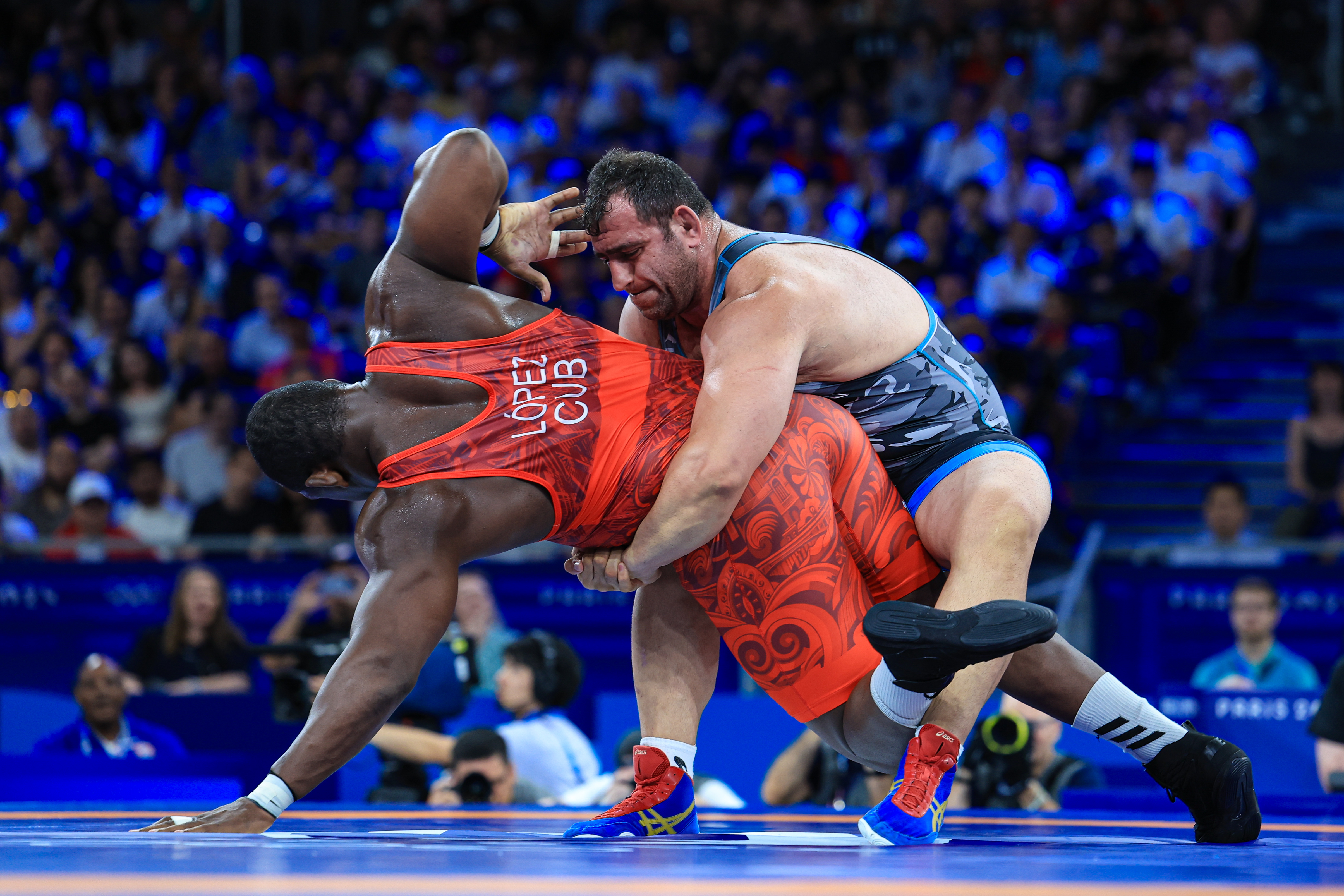
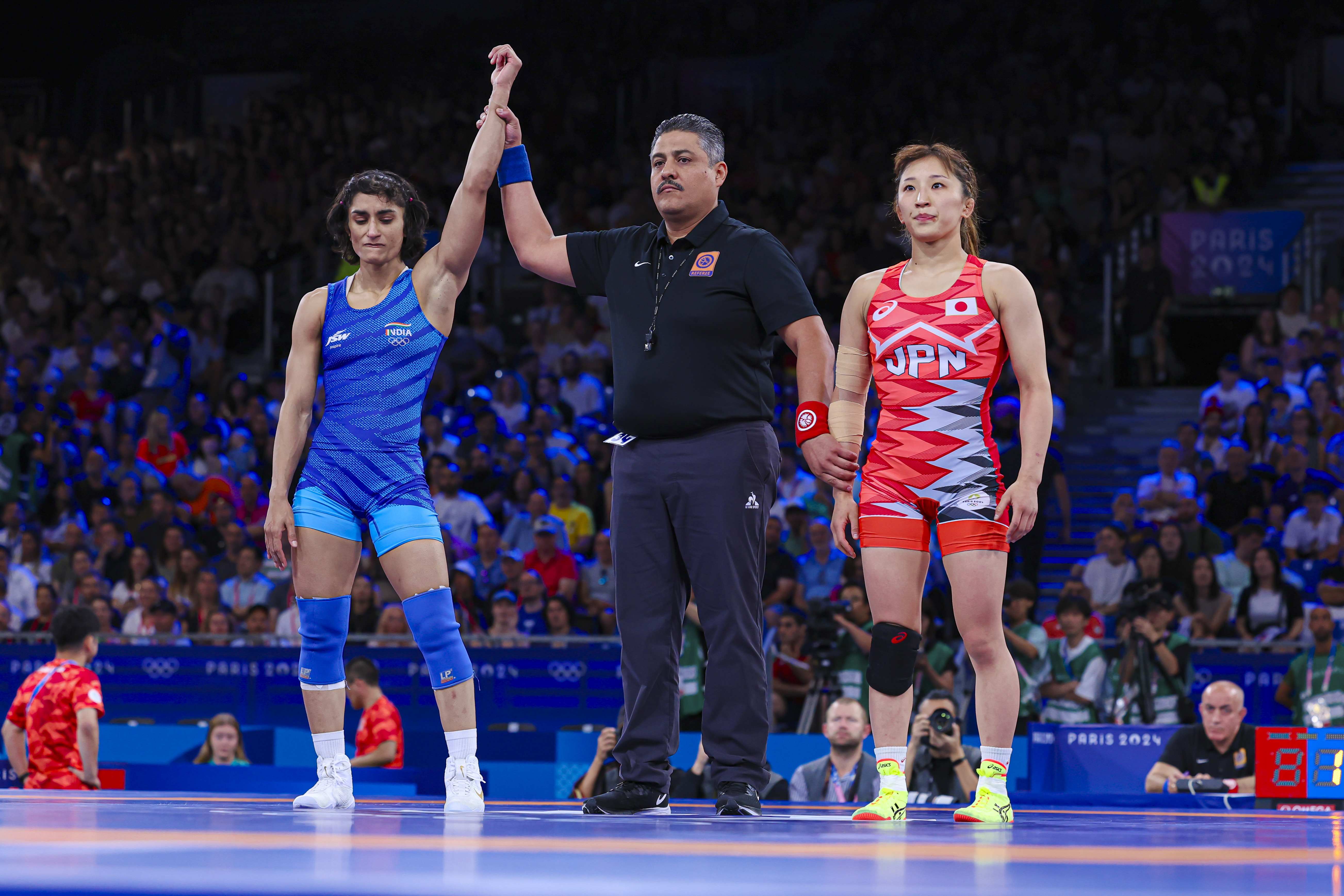
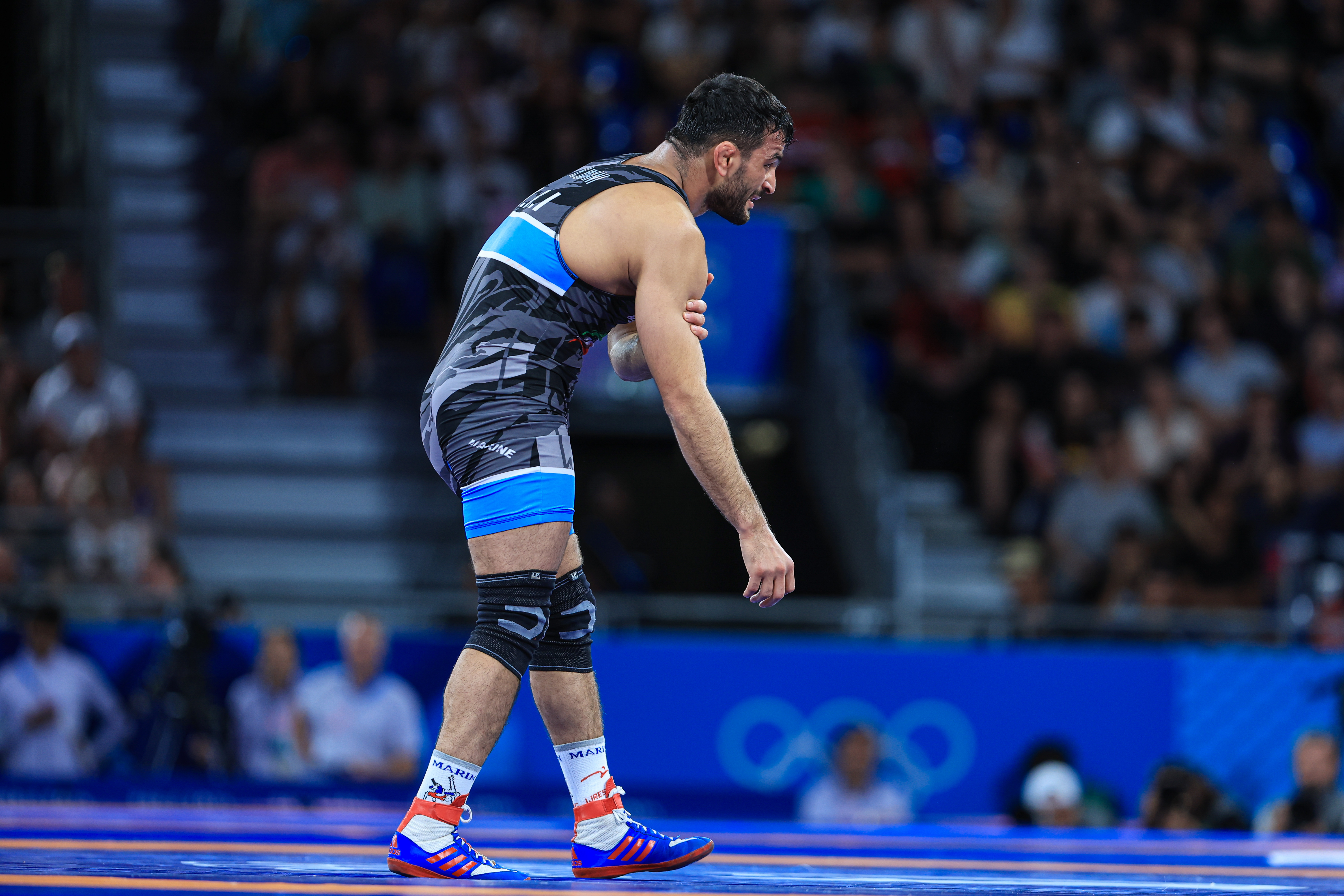




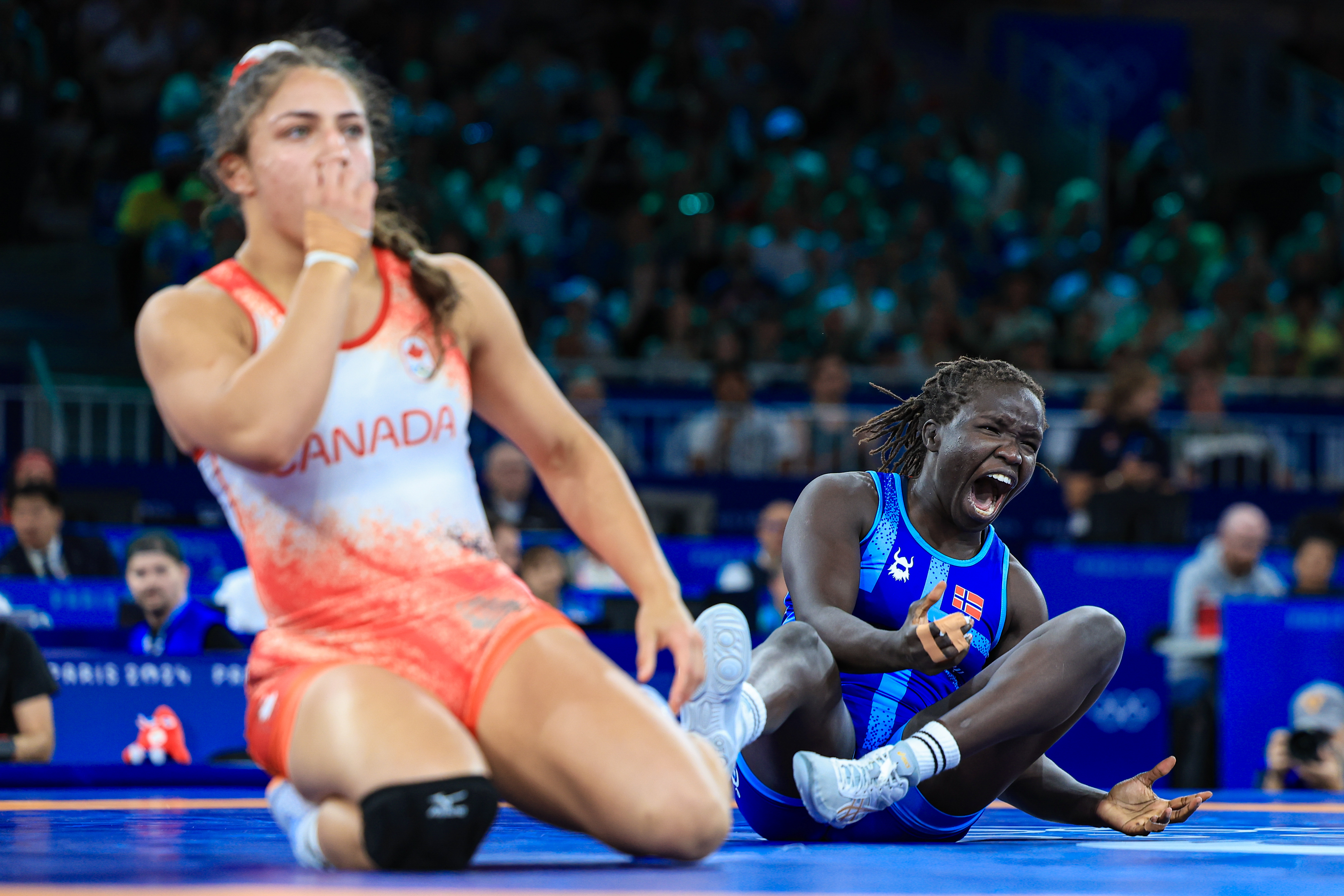


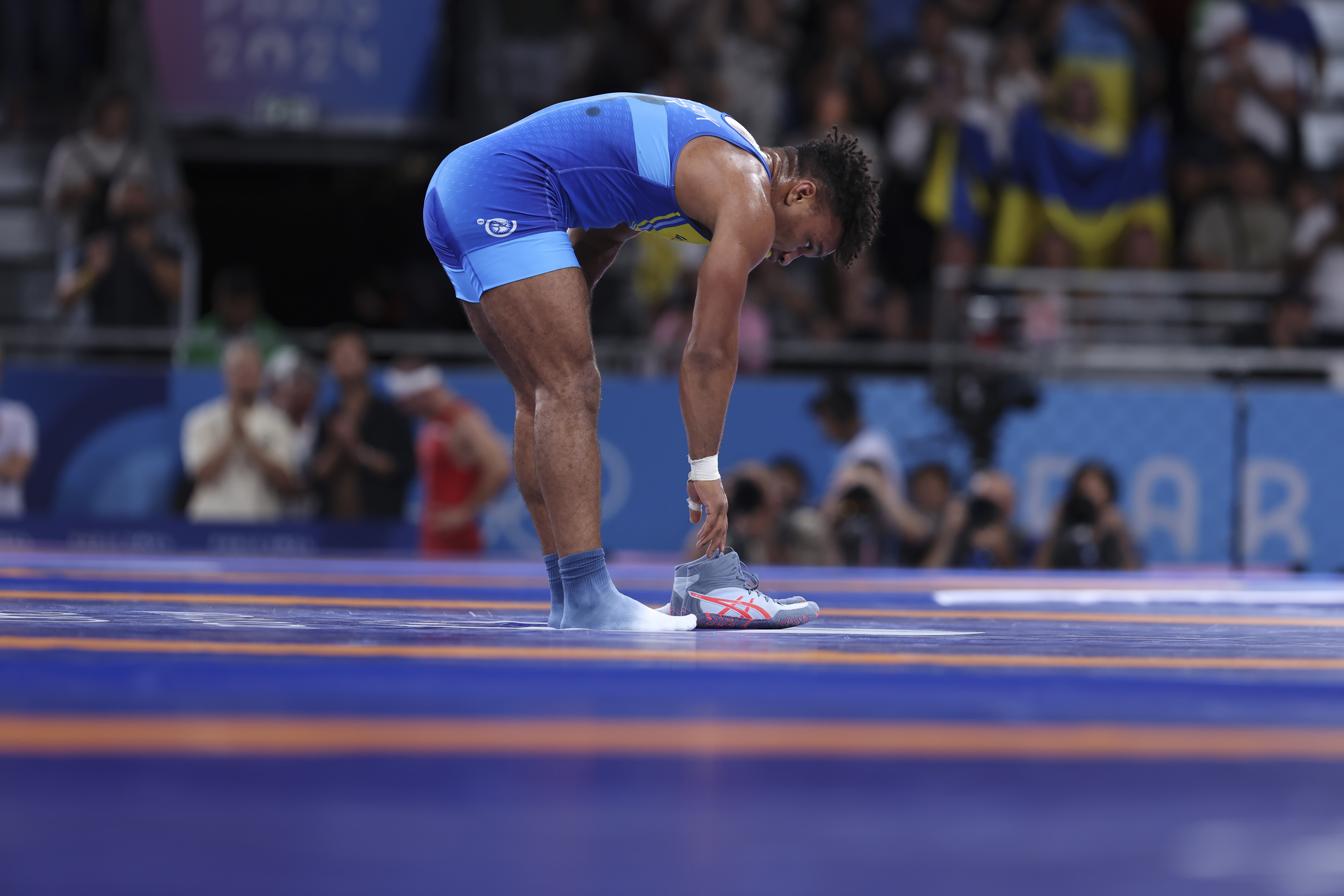
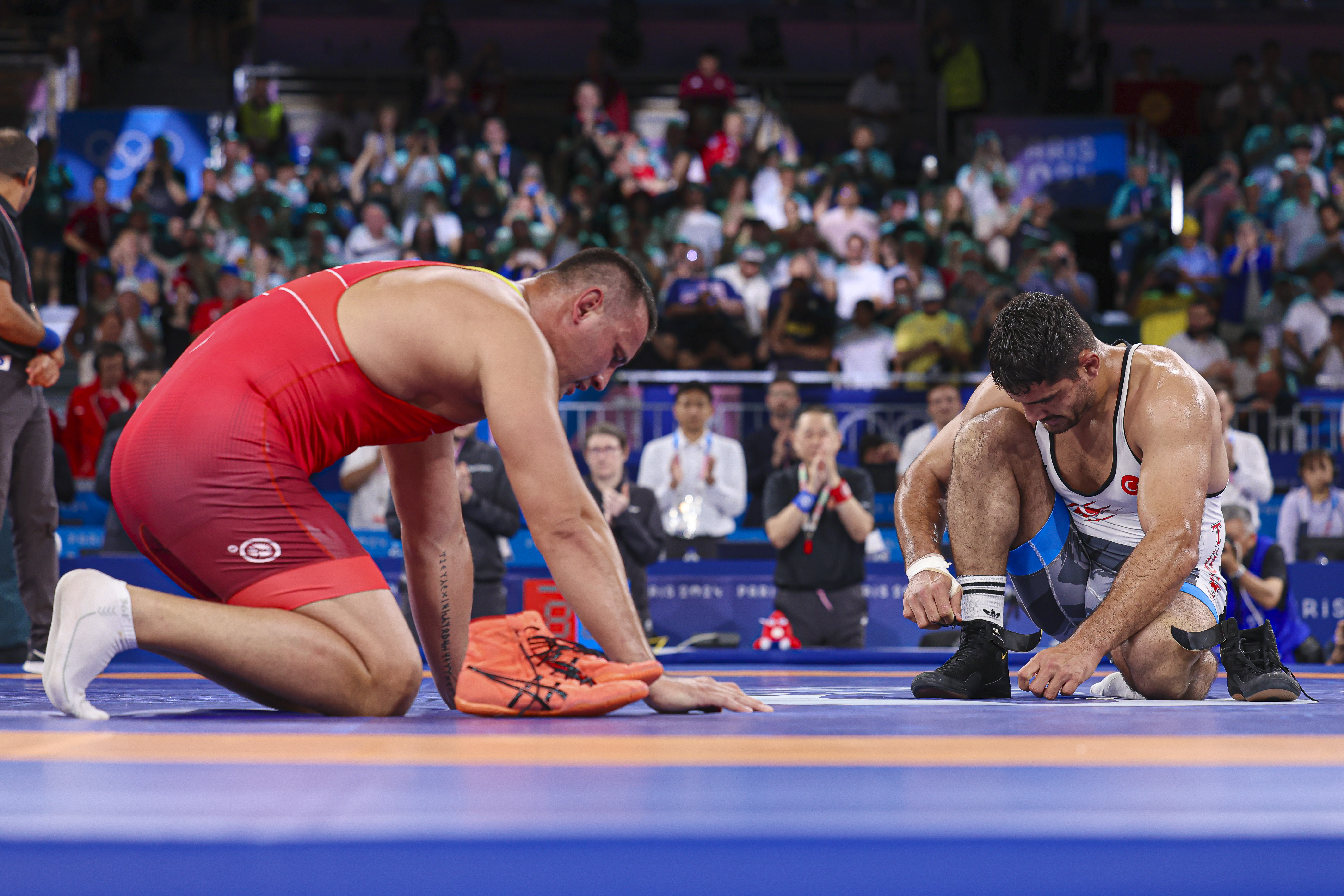
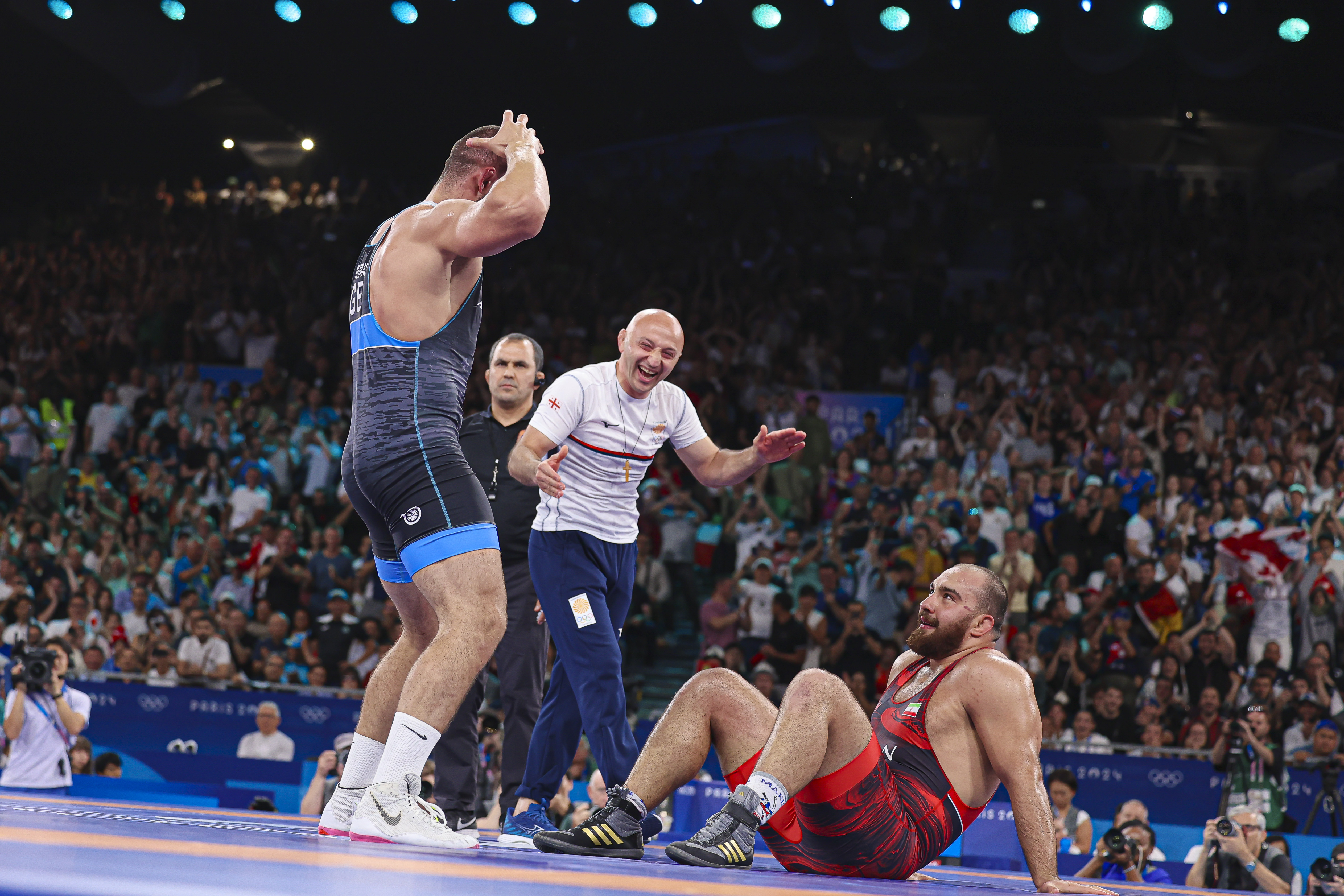

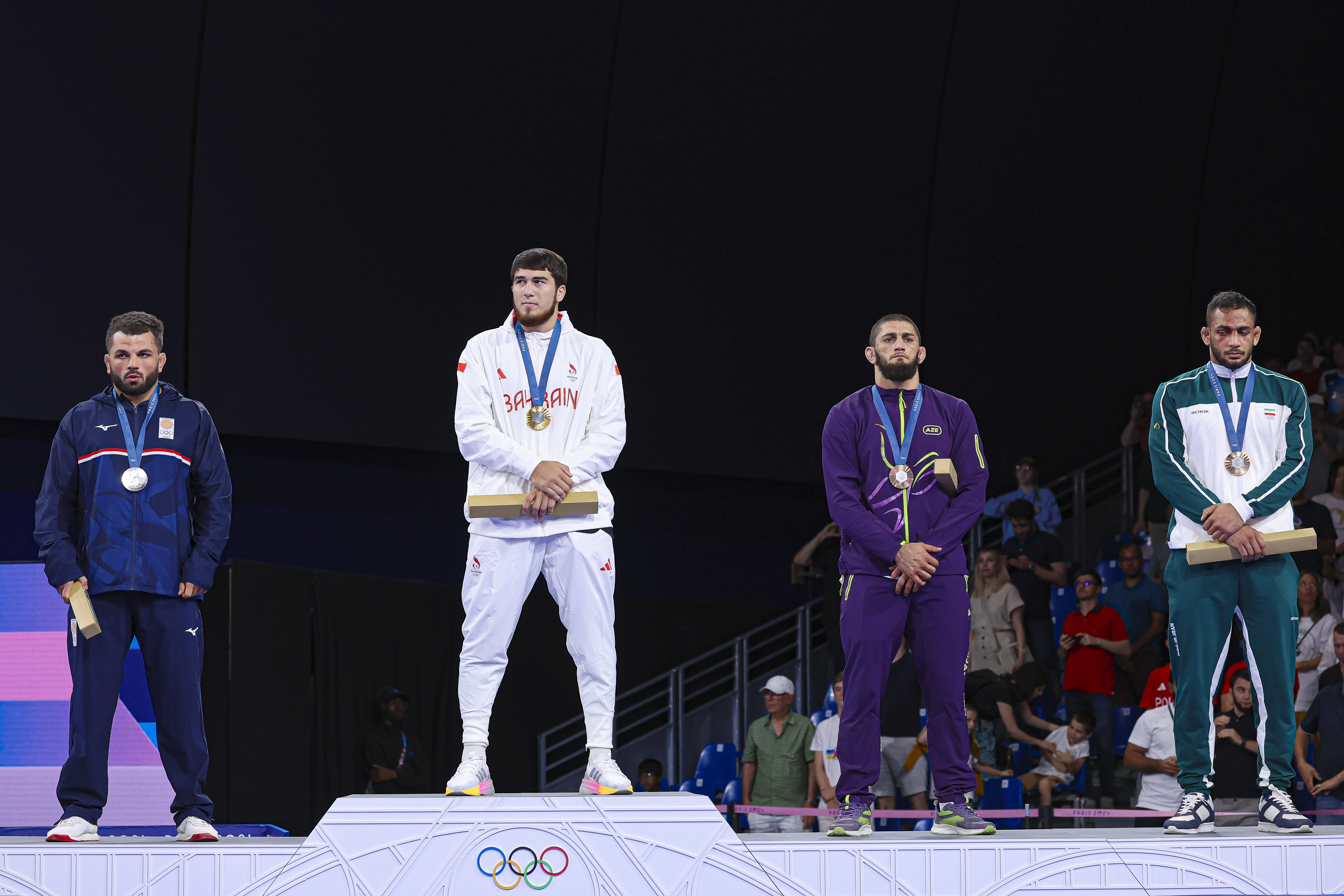


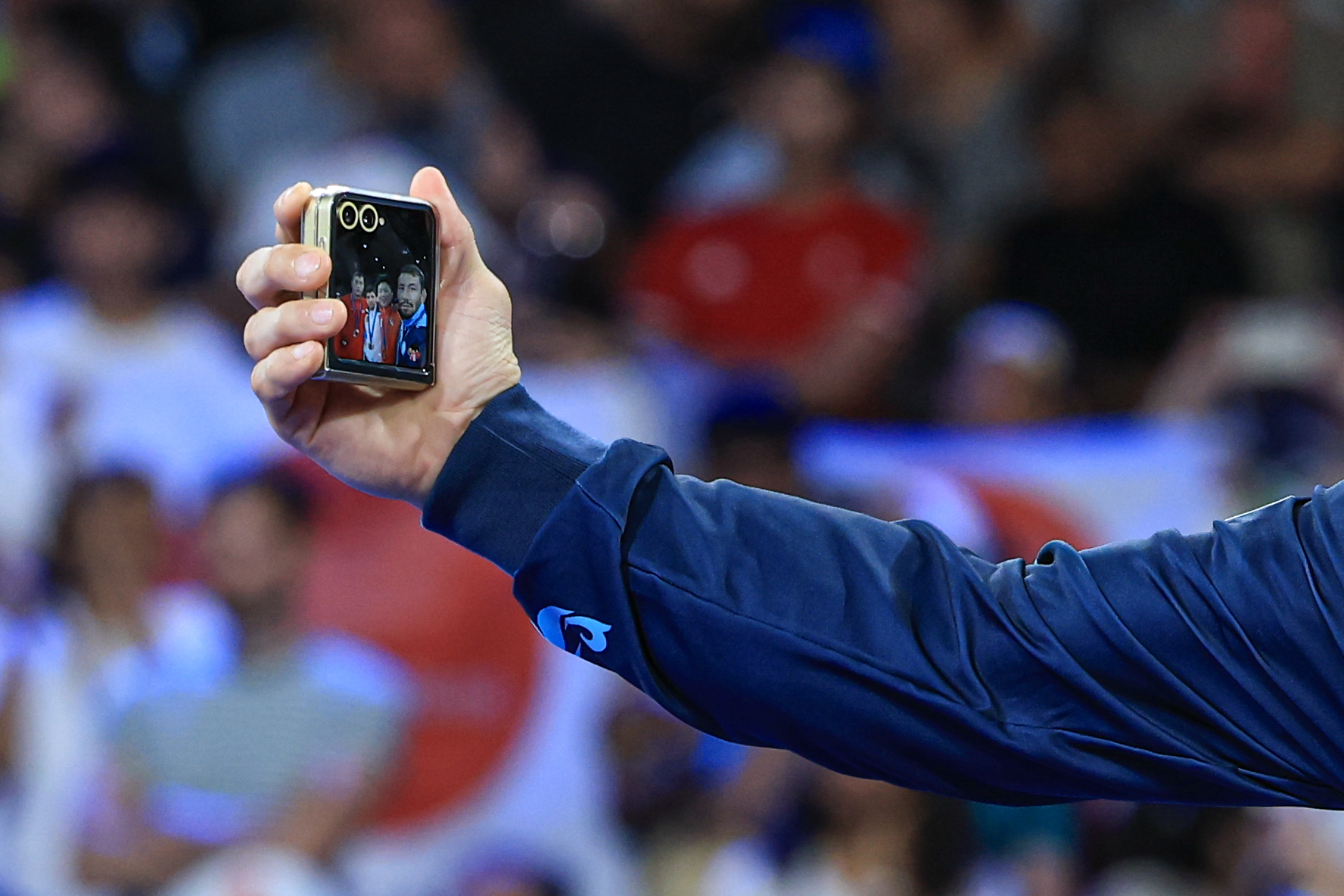
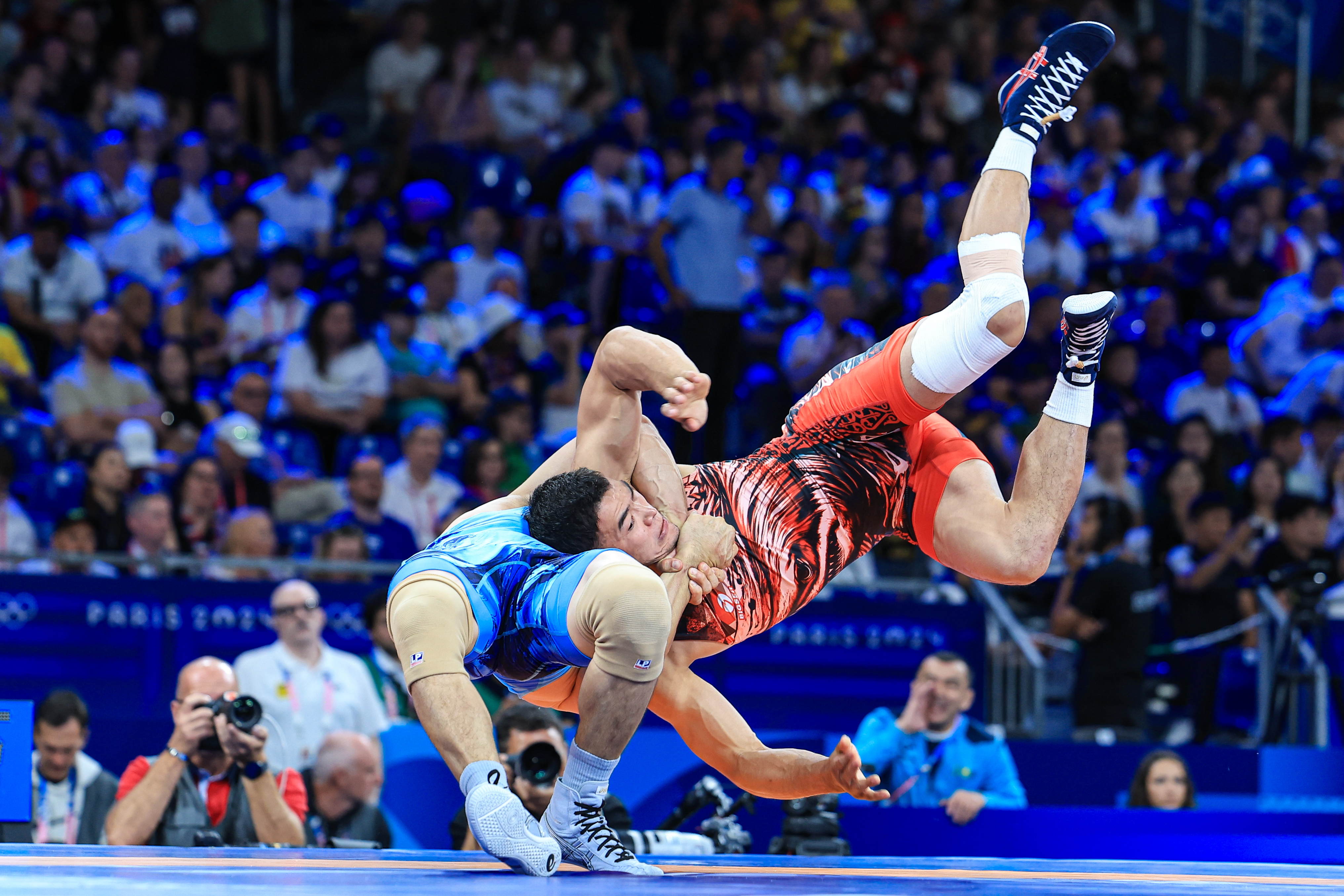

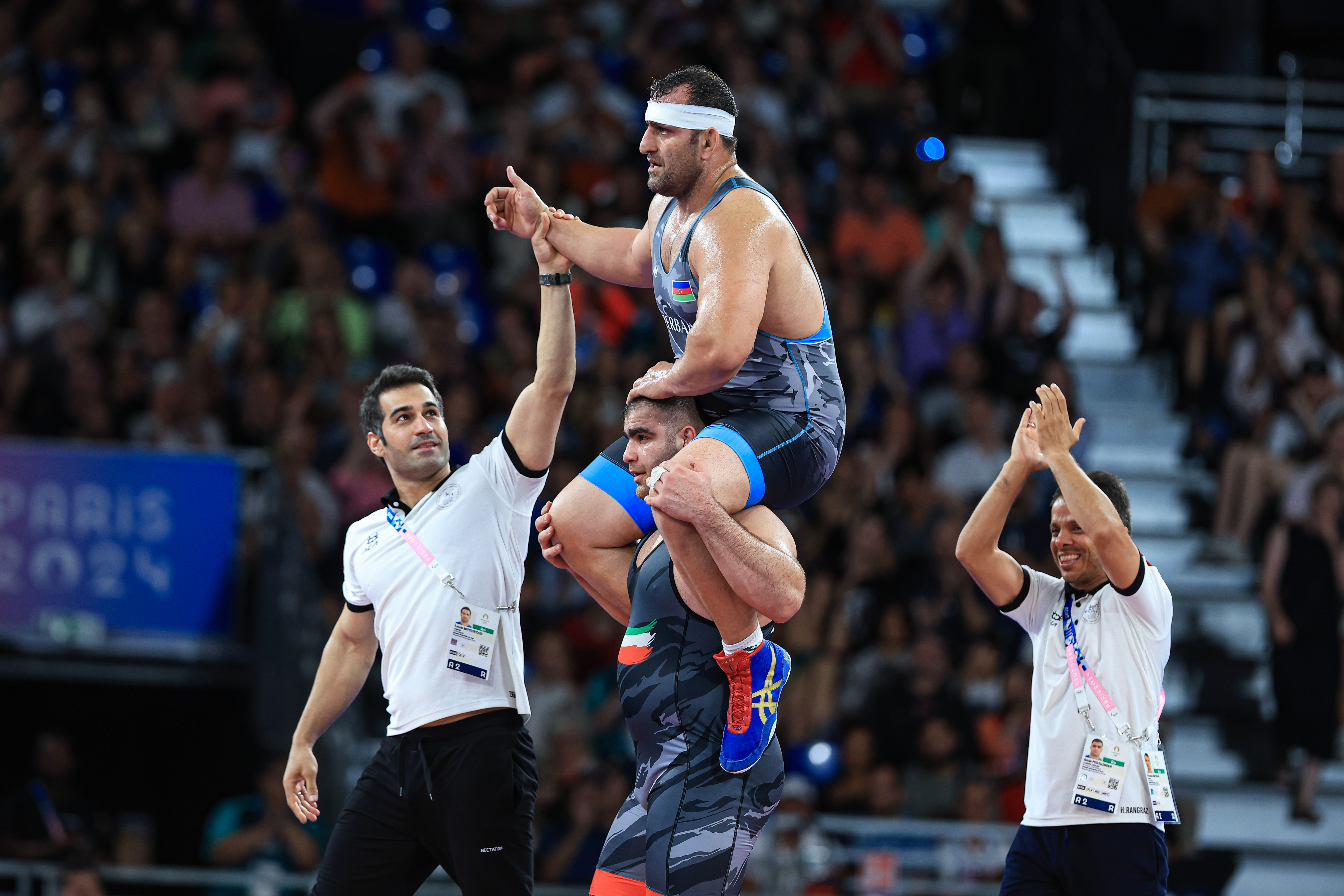


Share your thoughts.
Comments